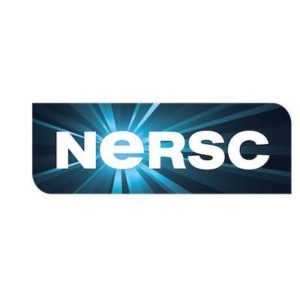 The National Energy Research Scientific Computing Center (NERSC) recently announced the recipients of its annual High Performance Computing Achievement Awards, recognizing eight early-career scientists who have made significant contributions to scientific computation using NERSC resources.
The National Energy Research Scientific Computing Center (NERSC) recently announced the recipients of its annual High Performance Computing Achievement Awards, recognizing eight early-career scientists who have made significant contributions to scientific computation using NERSC resources.
The NERSC awards pay tribute to the accomplishments of young researchers in scientific fields supported by the U.S. Department of Energy Office of Science. The awardees were cited for their work in a variety of fields, including astrophysics, Earth sciences, materials research, high energy physics, and fusion energy.
Four awardees were cited for High Impact Scientific Achievement:
- Abigail Polin, Caltech and Carnegie Observatories: “For providing new insight into the origin and nature of Type 1a supernova.”
- David Vartanyan, UC Berkeley: “For contributions to unraveling the characteristics and mechanisms of core-collapse supernova explosions.”
- Samuel Kachuck, University of Michigan: “For improving ice sheet and Earth system models to enable accurate projections of future sea-level rise.”
- Hsin-Yu Ko, Cornell University: “For developing highly parallel methods for accurate ab initio molecular dynamics simulations and measuring order in condensed phase systems.”

Top row, left to right: Abigail Polin, David Vartanyan, Samuel Kachuck, Miha Muskinja. Bottom row, left to right: Hsin-Yu Ko, Quentin Riffard, Antonio Villarreal, Grant Johnson
Three scientists were recognized for their Innovative Use of High Performance Computing. The three are all working to create an ecosystem in which HPC resources can be quickly and seamlessly leveraged to benefit work being done at scientific experimental facilities:
- Miha Muskinja, Berkeley Lab: “For developing a new software infrastructure that allows researchers connected to the ATLAS particle physics experiment at CERN to use HPC systems efficiently and effectively.”
- Quentin Riffard, Berkeley Lab: “For driving the effort to leverage the power of HPC for the LZ dark matter search experiment simulations.”
- Antonio Villarreal, Argonne National Laboratory: “For developing innovative workflows to enable using HPC at scale in support of the LSST Dark Energy Science Collaboration.”
Muskinja, Riffard, and Villarreal are all currently postdoctoral researchers.
The final recipient was honored for outstanding research by an undergraduate student:
- Grant Johnson, Lawrence Livermore National Laboratory: “For helping elucidate previously unexplained plasma-surface interactions in tokamak fusion clean-energy reactors.”
Johnson, currently a graduate student at Princeton University, was an undergraduate at Embry-Riddle Aeronautical University working with researchers at Livermore Lab when he conducted the research cited in the award.




